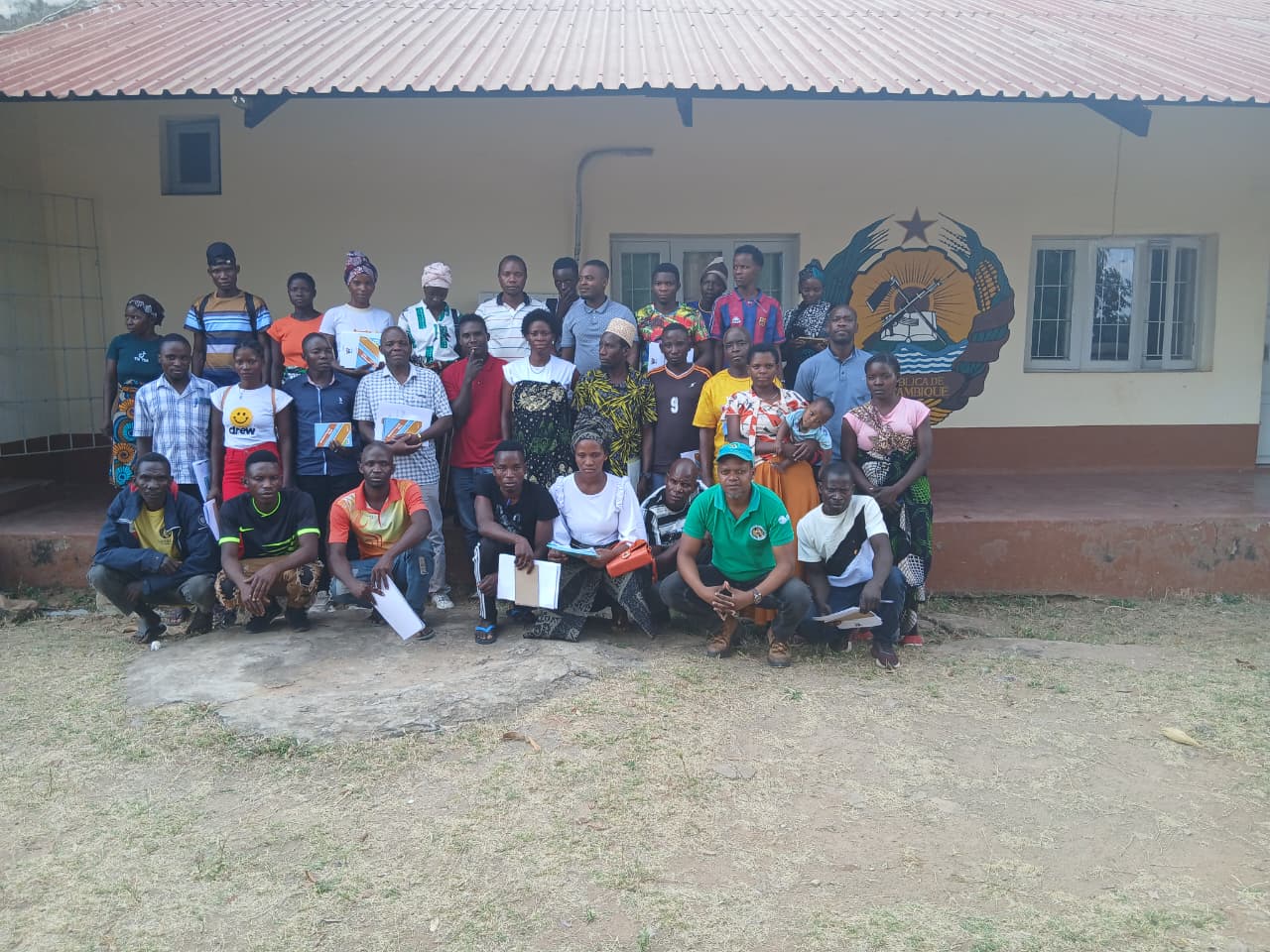
On 20 September 2025, the District of Mecula, in Niassa Province, was the scene of a transformative initiative to strengthen local cooperatives. The District Government's meeting room hosted a training session on business and stock management, part of the Moznorte Project, which brought together 26 members from 11 cooperatives in the communities of Mecula-sede, Macalange, Lichengue, Nampequesso, Ntimbo 1, Ntimbo 2, Lisongole and Cuchiranga.
The event, which was attended by Mr. Domingos Gomes, representing the District Government on behalf of the Director of the District Economic Activities Service (SDAE) of Mecula, marked a significant step forward in the training of small producers and cooperative managers. With the aim of promoting economic sustainability and management efficiency, the training addressed topics crucial to the success of cooperatives, such as i) accounting and financial records, including ii) the importance of keeping accurate records of income, expenses, cash flow and profit and loss calculations. ii) stock management: techniques for efficient product control, with an emphasis on FIFO (First In, First Out) and LIFO (Last In, First Out) methods, as well as strategies for managing perishable products and preparing monthly stock reports.
The training was designed to equip participants with practical tools to maximise the profitability and organisation of cooperatives, promoting local economic development. ‘This training is a milestone for our communities. With these skills, cooperatives will be able to better manage their resources, reduce losses and increase profits, contributing to the well-being of families and the sustainable growth of the district,’ said Mr Domingos Gomes.
The Moznorte Project, which has been promoting training initiatives in various regions, reinforces with this action its commitment to supporting rural entrepreneurship and the professionalisation of cooperatives. The active participation of cooperative members demonstrates the growing interest in adopting modern management practices, which promise to transform the economic reality of Mecula's communities.
This initiative is an inspiring example of how training and investment in human capital can generate positive and lasting impacts, putting Mecula on the path to inclusive and sustainable economic development.